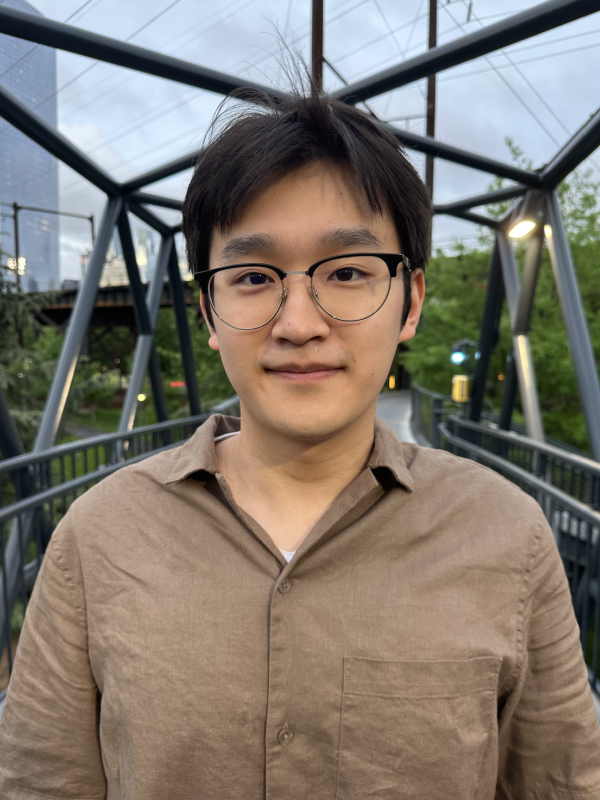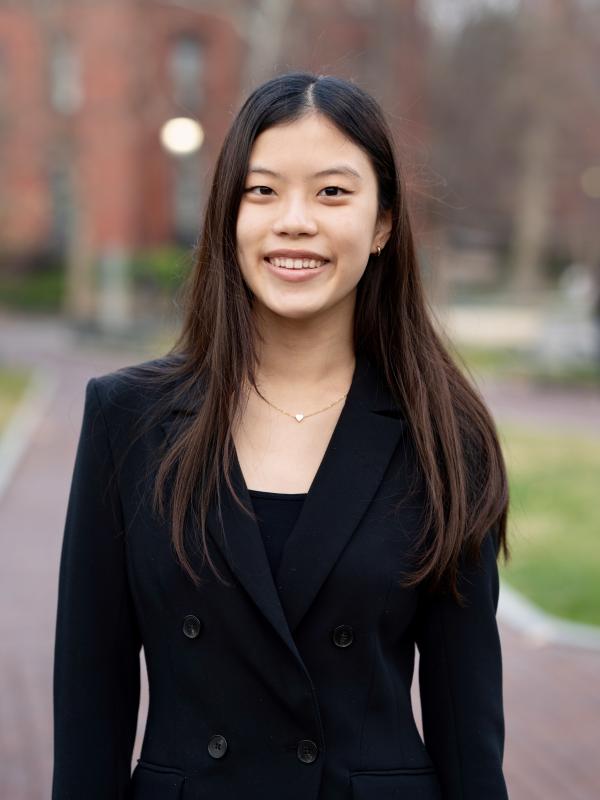Forrest Lin
As a third-year bioengineering major, I’m enthusiastic about studying the intersections between my major and neurology through translational research. A majority of my work concerns the application of neuromodulation (modifying neural activity by delivering electric/magnetic impulses) and how these techniques can be used to clinically alleviate cognitive impairments in various mechanisms of disease/injury (stroke, dementia, small vessel disease, etc). With UScholars' support in Summer 2025, I've continued my research with Dr. Kelly Sloane at the Laboratory for Cognition and Neural Stimulation (LCNS) while exploring new areas of interest. These projects range from benchmarking large language models (LLMs) as alternative methods to automate time and labor-intensive processes in the transcription of impaired speech to surveying healthcare providers and patients to evaluate the quality of care in post-stroke patients. Outside of research, I enjoy perusing through second-hand bookstores and learning trendy choreographies that I find on YouTube with friends.
- Peer Mentor Group Lead
- SEAS Orientation Peer Advisor

Yucheng Shao
I'm interested in the applications of machine learning in various sectors, including finance, neuroscience, and climate change. At Penn, I work in the Weber Lab using LSTM and CNN machine learning models to detect p-waves (brief peaks linked to brain state transitions) during sleep in both mice and humans, using EEG and LFP recordings. I have also conducted research under Professor Charles Yang in the Linguistics department, where I modeled how children learn pattern recognition using cognitive science principles. Previously, I have worked on research projects related to climate change, snowfall and weather prediction, and simulating space weather in the Earth’s magnetosphere. Outside of research, I’m a CIS 1200 TA, in Theta Tau, and involved with PennApps. Recently, I’ve been exploring software engineering through full-stack web development at a fintech company.

Autonomous Experimentation Development for Polymer Nanocomposite Research
This project integrates autonomous experimentation powered by AI to study process-structure-property relationships in polyelectrolyte-based polymer nanocomposites.
Cloud computing-based platforms in biomedical data science
Cloud computing for health and disease
Precise Genome Editing and Engineering for Human Health
We welcome highly motivated undergraduate researchers to work together!
Studying the dialogue between the microbiome and the immune system
Our lab studies the effect of the microbiome on the immune system in health, disease and therapy.
Machine Learning and Computational Marketing
I am seeking research assistants to help develop the next generation of tools for marketing analytics, including methods for learning consumer preferences from unstructured image, text, and video data, new solutions for modeling customer lifetime value, and advanced machine learning tools for optimizing marketing. This is a technical position that requires prior coding experience.
Cystic Fibrosis and Pulmonary Clinical Research
We have multiple clinical research studies underway focused on cystic fibrosis (CF) and respiratory outcomes of prematurity. Students will have an opportunity to participate as part of the clinical research team. We employed advanced pulmonary function testing such as electrical impedance tomography and forced oscillation.
Basic Epilepsy Research: Exploring the Interface Between Neuroscience and Engineering
Join us to study how epilepsy develops using in vivo and in vitro models, along with engineering approaches.
Optical Functional Neuroimaging in Pediatric Disease Models
We use optical functional neuroimaging techniques (e.g., widefield optical imaging, diffuse optical tomography) to study biomarkers of neuronal injury in mouse and pig models. These techniques are similar to fMRI, but more portable to allow bedside imaging in acute injury.
- Previous page
- Page 3
- Next page